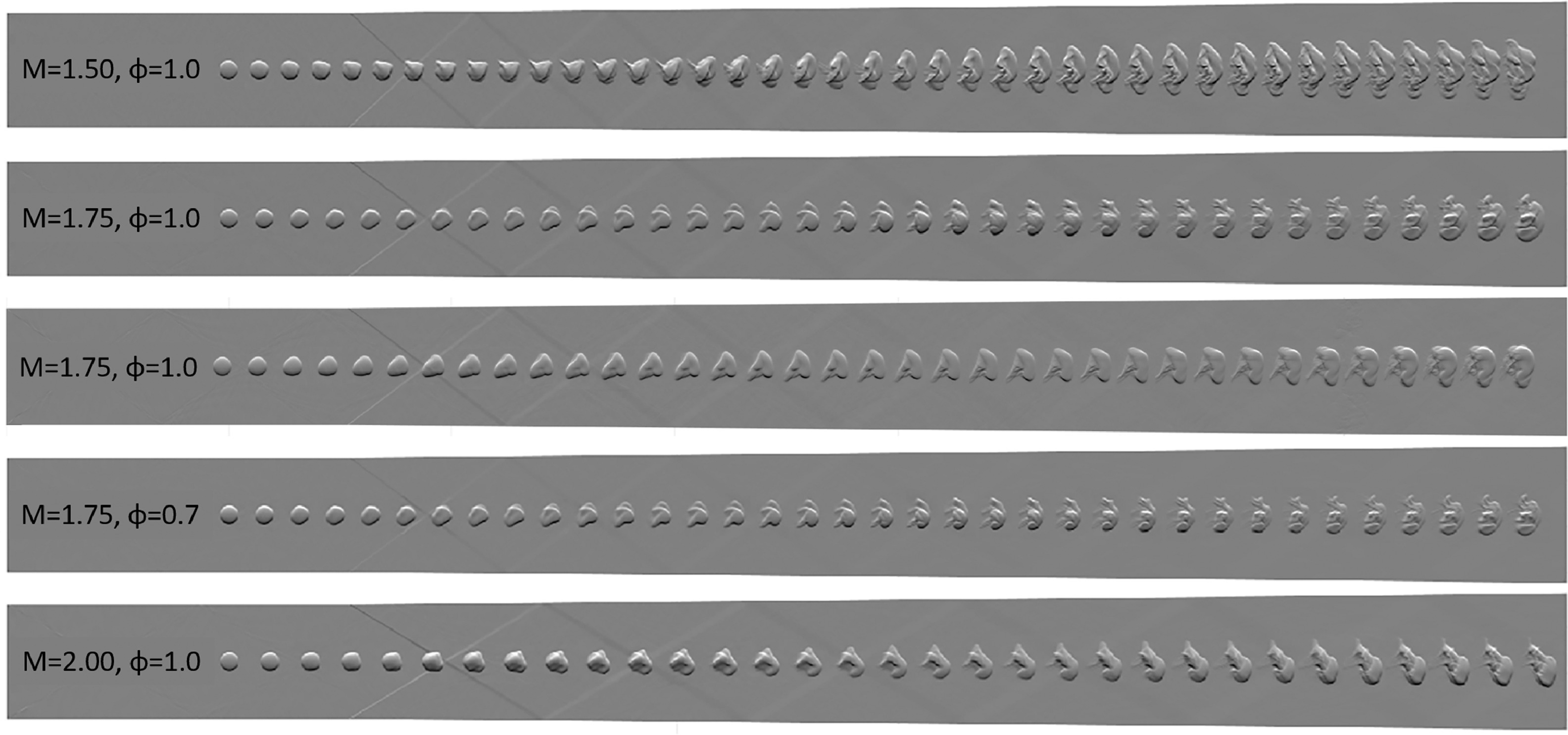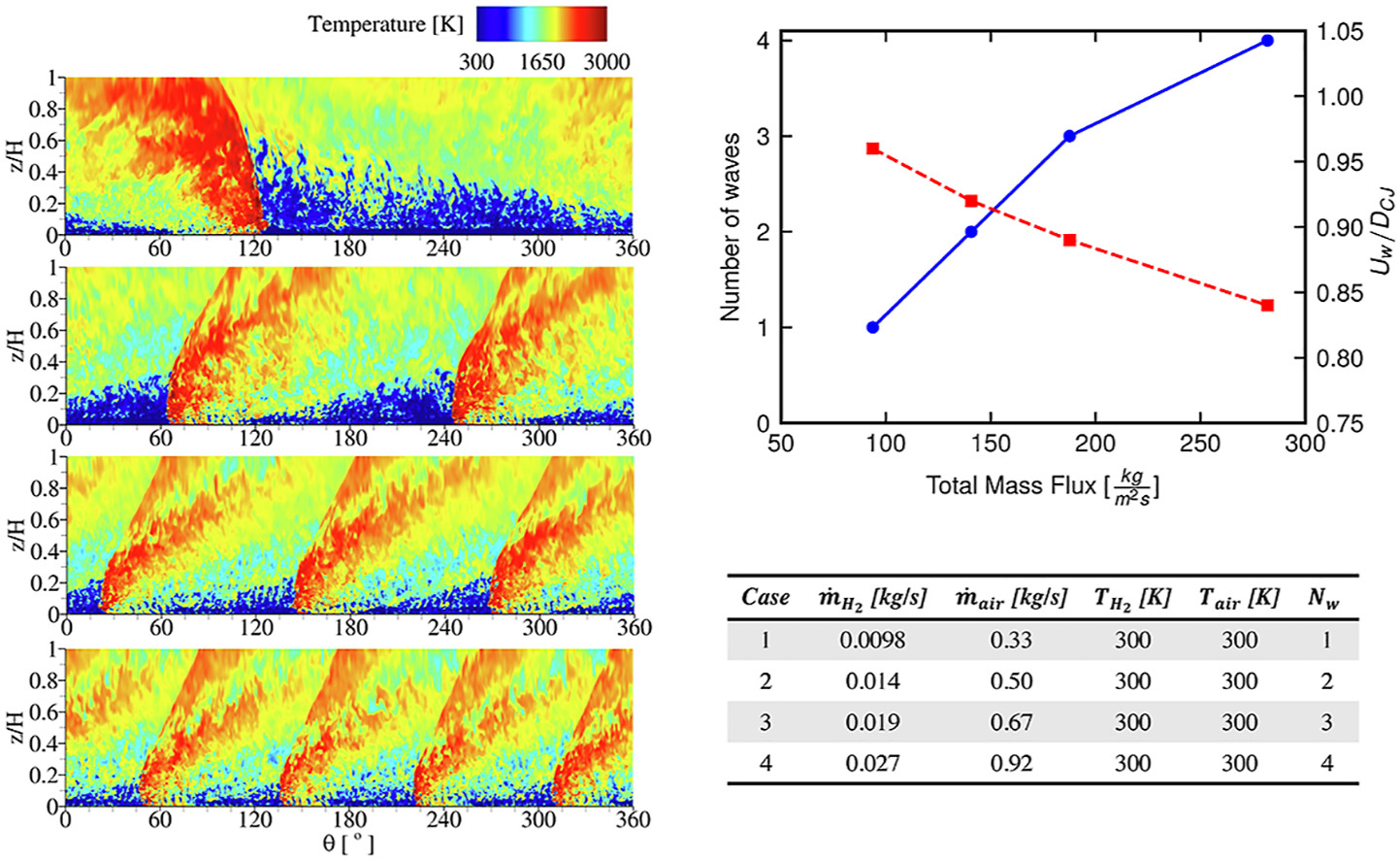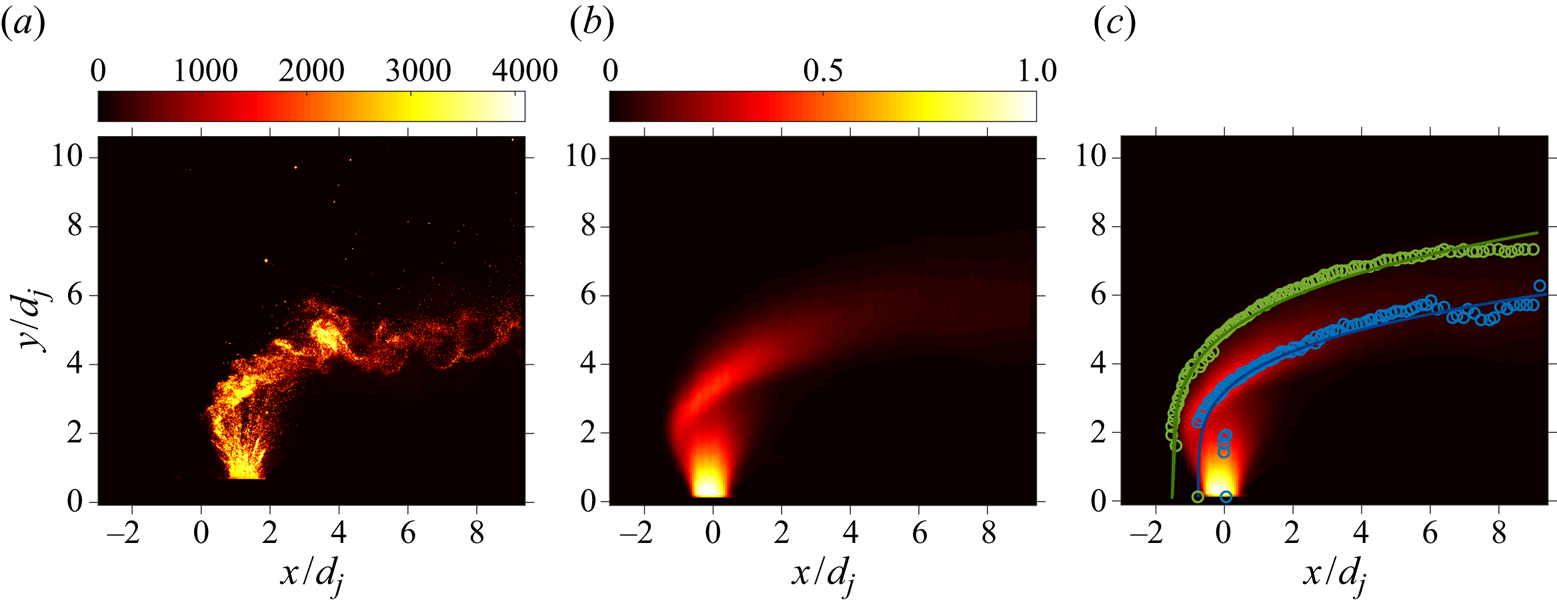
Many technologies -- such as scramjets and rotating detonation engines (RDE) -- involve combustion in high-speed flows. Such technologies present many challenges for effective design and operation, such as
- Short residence times relative to mixing and chemical times
- Fluid compressibility that couples with combustion, including shockwaves and compressible turbulence
- Extreme thermodynamic conditions
The Ben T. Zinn Combustion Lab conducts both computational and experimental research to understand, predict, and control the behavior of high-speed combustion. For example, a recent numerical study has investigated the influence of mass flow rate on the multiplicity of detonation waves inside a RDE, demonstrating the correlation between initial injection conditions and wave multiplicity.

Other work has studying the trajectory and mixing of jets injected into supersonic crossflows, which is important for efficient fuel injection.

Ongoing work in this area is expanding efforts in supersonic swirl flames, fuel injection, and detonation-based engines.
Research groups working in this area:
- Prof. Tim Lieuwen
- Prof. E. Mazumdar
- Prof. Suresh Menon
- Prof. Joe Oefelein
- Prof. Devesh Ranjan
- Prof. Adam Steinberg
- Prof. Wenting Sun
